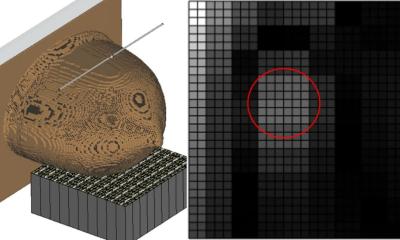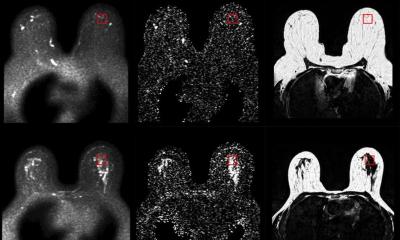Early detection of breast cancer
Mark Nicholls reports
A study looking at breast cancer patients in England compared to those in Norway and Sweden has highlighted the importance of early detection. The three-country comparison reveals that every year almost 1,000 more lives could be saved in England alone.

The researchers, led by Professor Henrik Møller from King’s College London, chose to compare England’s survival rates with those of Norway and Sweden because in these countries data is collected on every cancer patient, whereas in other European countries national data are often not routinely collected.
The study looked at all survival rates from all cases of breast cancer diagnosed between 1996 and 2004.
The research, presented to the National Cancer Intelligence Network (NCIN) conference, showed that if England matched Norway and Sweden’s survival rates for breast cancer, 957 deaths could be prevented annually in women whose cancer is diagnosed so late that they usually die within two years of diagnosis.
When breast cancer is caught early, treatment is often milder and more effective. Survival rates soon after diagnosis can be used as an indicator of whether the disease is being caught early or late, the researchers reported.
Professor Møller said the study had important implications for women in England. ‘We could prevent nearly a thousand deaths from breast cancer each year by getting the disease diagnosed earlier, particularly in older women. These figures show how important it is for women, and GPs, to know the symptoms of breast cancer and to act on them without delay. Going for screening when invited will also help to catch the disease at the earliest stage. Although women over 70 aren’t routinely invited for screening, they can ask their GP for a mammogram.’
Every year, in England, there are 1,183 excess deaths from breast cancer within five years of diagnosis. Of these avoidable deaths, 260 occur within a month of diagnosis, 557 between a month and a year after diagnosis and 140 deaths happen after a year but before two years since diagnosis.
Crucially, 81% of these deaths occur within two years of diagnosis and mainly in older women over 80. This amounts to 957 deaths that should not have happened, the King’s College team pointed out.
In England, over 38,000 cases of breast cancer are diagnosed each year and overall eight out of ten women survive the disease beyond five years with breast cancer survival improving and death rates having fallen in recent decades.
The NCIN was established in June 2008 with a remit to coordinate the collection, analysis and publication of comparative national statistics on diagnosis, treatment and outcomes for all types of cancer.
Chris Carrigan, head of the NCIN, said it was already known that many cancers are being diagnosed too late in England and that the King’s College study was important in highlighting the scale of the challenge for breast cancer in particular. ‘More women are surviving breast cancer than ever before and we know that significant improvements in breast cancer treatment are being made. But we still have work to do to emphasise the benefits of early detection.’
Professor Sir Mike Richards, National Cancer Director at the Department of Health said: ‘This is an important new study. It highlights the importance of early diagnosis in achieving the best possible survival rates for women with breast cancer. Survival rates have improved in this country over the past decade, but there is more to be done. Over the coming months we shall be looking at what needs to be done to achieve earlier diagnosis.’
07.09.2010











